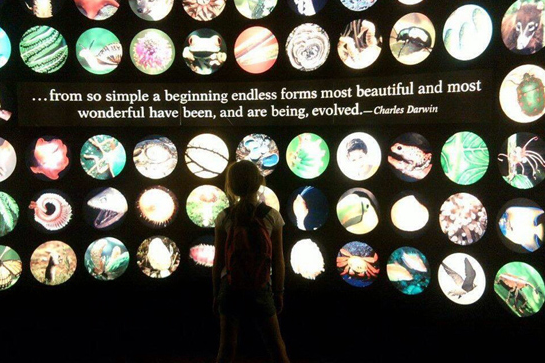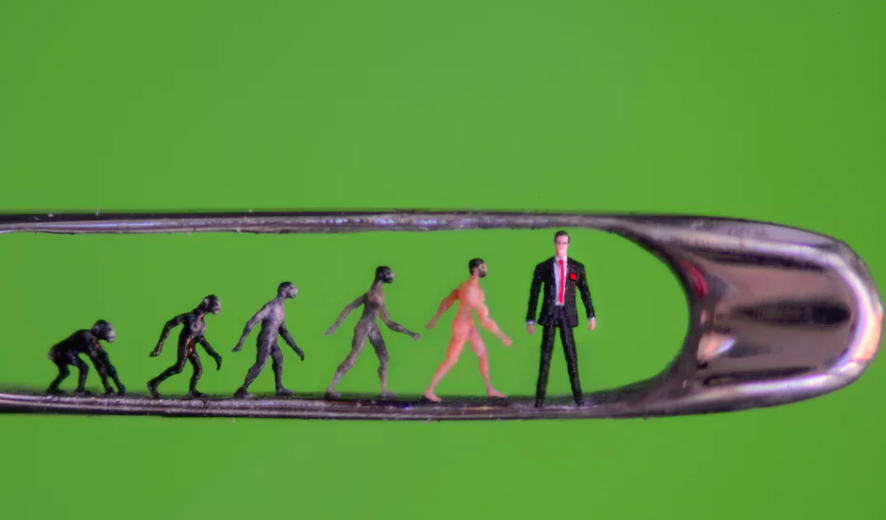Category: CCL
Kelemen and Emmons Investigate Children’s Pre-Life Beliefs
“‘There is so much secular as well as religious testimony about what it is to be a ghost,” Kelemen said. “You see it in Harry Potter films, in Disney films. Even if children aren’t being raised in religious homes, they’re surrounded by cultural ideas that would tell them what to believe, and that’s true from very early on.’”
Kelemen theorized that terror management explained some aspects of adult behavior, but wanted to know whether children adopted a fear of death and a longing for immortality through social means, or if it happened more intuitively.
To investigate these ideas, Kelemen assisted post-doc researcher Natalie Emmons in a study on pre-life beliefs. Instead of asking children about the concept of immortality as an event that only occurs after death, Emmons created a questionnaire about whether the children existed in any form before they were born. She then interviewed more than 200 urban children in Ecuador (who were largely raised in a Catholic context) and around 80 children in a Shuar village of indigenous people.”
To learn more about what Kelemen and Emmons found, visit the recent story from the Templeton Foundation.
Why Kids Deserve Accurate COVID Information
"“Kids are often undersold, given less [information] than they deserve in terms of explanation,” says Deborah Kelemen, a Boston University College of Arts & Sciences professor of psychological and brain sciences. She specializes in cognitive and conceptual development in children. Kelemen says that kids are often privately ruminating on information they receive from their parents, trying to make sense of the context."
Read more here: https://www.bu.edu/articles/2020/dont-undersell-the-facts-why-kids-deserve-accurate-coronavirus-information/
Samuel Ronfard in NPR!
Click here to read about the CCL's very own Dr. Samuel Ronfard's work in NPR!
Kids Start To Test Surprising Claims By Early Elementary School
by Tania Lombrozo

"... In short, children don't just soak up what they're told: They integrate what they hear with other sources of evidence, and they take into account the reliability and expertise of the informant. But these are abilities that develop over time, and children must learn to coordinate them with other activities, like asking questions and making their own observations. In fact, as children learn and mature, they don't simply become more critical consumers of what others say, they also learn how to seek out the evidence that will allow them to test surprising claims.
That's the core finding from a new paper forthcoming in the journal Developmental Psychology, authored by psychologists Samuel Ronfard, Eve Chen, and Paul Harris. In the paper, Ronfard and colleagues investigated how children respond to a counterintuitive claim — and in particular, whether they would go on to deliberately test a claim from an adult when it conflicted with their prior expectations...."
Child Cognition Lab Raised OVER 17K in Crowdfunding Campaign!
The Child Cognition Lab (PI: Dr. Deborah Kelemen) and Evolving Minds Project has raised $17,725 in a crowdfunding campaign to get their storybook on adaptation by natural selection into schools across the country!
To learn more about their project, or to stay updated on their progress, visit their project website.
Child Cognition Lab Featured on BU Today!
The Child Cognition Lab's Evolving Minds Project was featured on BU Today! Read the article here.
How the Piloses Evolved Skinny Noses on BBC World Service
BBC World Service Newshour ran a segment on our storybooks this week. Listen here on the BBC's site starting at 46:25, or to the clip below!
How the Piloses Evolved Skinny Noses gets its BBC Radio 4 debut!
On Start the Week Andrew Marr asks whether scientists have failed in their task to communicate their work to the wider public. The 'passionate rationalist' Richard Dawkins has spent his career trying to illuminate the wonders of nature and challenge what he calls faulty logic. But he wonders whether Darwin would consider his legacy now with 'a mixture of exhilaration and exasperation'. The child psychologist Deborah Kelemen has been working with young children to find out what they make of adaptation and evolution with the storybook, How the Piloses Evolved Skinny Noses, and is encouraged by the sophistication of their understanding. The mathematician Cathy O'Neil says it's time people became more aware of the mathematical models and algorithms that dominate everything we do online and in finance, and yet are increasingly opaque, unregulated and left unchallenged. While Alex Bellos looks to improve numeracy with puzzles and brainteasers which have been entertaining and frustrating people for centuries.
Listen here! And don't forget to find more information about the Evolving Minds Project at evolvingmindsproject.org!
Can Young Children Understand Complex Science?
Deborah Kelemen and fellow researchers discovered that children are able to grasp complex scientific concepts like adaptation by natural selection at a younger age than previously thought.
Recent research indicates that children can understand complex scientific concepts—like natural selection—far beyond what anyone would have expected.
To test this, cognitive developmental psychologist Deborah Kelemen and coresearchers created a 10-page picture storybook about pilosas, a group of fictional mammals with long trunks. Then they read it aloud to five- to eight-year-olds.
Read more here
Evolution Makes Scientific Sense. So Why Do Many People Reject it?
Child psychology studies have found a human bias toward the theory of intelligent design and pose a solution: teach evolution earlier.
Evolution remains misunderstood by students and even science teachers, and although it is a mandatory program in the majority of the UK and the United States more than a third of both countries reject the theory of evolution or believe it is guided by a supreme being. These beliefs become increasingly emphasized as children get older which why it is vital to teach evolution and natural selection at an earlier age.
Read the full article here
Best Way To Teach Evolution

Science frequently challenges our intuitive understanding of the world. Even as an adult, I am constantly confronted with new scientific advancements and discoveries that don’t always line up with my preconceived notions. Such ideas are considered counterintuitive because they present themselves in ways that are counter to one’s intuitive notions or “gut feelings.”
Counterintuitive concepts have been challenging how we understand the world for Geocentric (top) and heliocentric (bottom) models of the solar system ages. As early as the sixth century B.C., the idea that the sun, moon, stars, and visible planets all revolved around the Earth was commonplace. This idea is still shared widely by young children today. When asked to point to Earth when shown an image of the solar system, 69% of American first graders pointed to the sun. However, as students got older and more educated, they shift from this geocentric view (that Earth is the center of the solar system) to a more heliocentric one (that the sun is the center of the solar system).
Click here to read the full article from The Evolution Institute!



